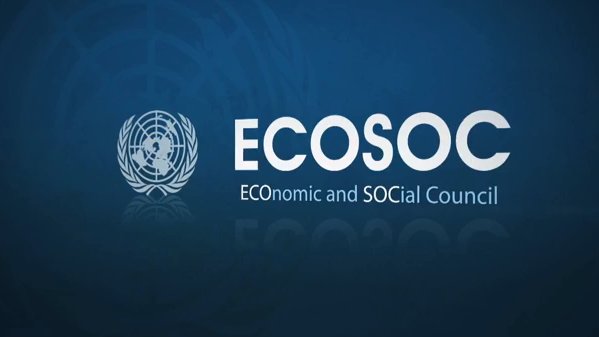United Nations Economic and Social Council (ECOSOC) serves as the central forum for the discussion of international economic, social, humanitarian and environmental issues, and for formulating policy recommendations addressed to Member States and the United Nations system. Through these discussions, the Council plays a key role in fostering international cooperation for development and in setting priorities for action. The Council also coordinates the economic, social and related work of the United Nations Funds, Programmes and Specialized Agencies — known as the United Nations family of organizations.
Functions and Powers of United Nations Economic and Social Council (ECOSOC)
The functions and powers of the Economic and Social Council as defined in the United Nations Charter (Chapter X) are, primarily, to:
- Make or initiate studies and reports with respect to international economic, social, cultural, educational, health, and related matters and make recommendations with respect to any such matters to the General Assembly, to the Members of the United Nations, and to the Specialized Agencies concerned.
- Make recommendations for the purpose of promoting respect for, and observance of, human rights and fundamental freedoms for all.
- Prepare draft conventions for submission to the General Assembly, with respect to matters falling within its competence.
- Call, in accordance with the rules prescribed by the United Nations, international conferences on matters falling within its competence.
- Coordinate the activities of the Specialized Agencies through consultation with and recommendations to such agencies and through recommendations to the General Assembly and to the Members of the United Nations.
- Furnish information to the Security Council and assist the Security Council upon its request.
Different functional commissions have been established as subsidiary bodies of United Nations Economic and Social Council (ECOSOC)
- Statistical Commission -For advancement of the global statistical system. Compile, disseminate, facilitate coordination, and develop standards and norms for global statistical information systems.
- Commission on Population and Development -It assists the ECOSOC by undertaking/arranging for studies and advising the council. It monitors, reviews and appraises the Implementation of the Programme of Action of International conference on Population and Development.
- Commission for Social Development – It advises and assists the ECOSOC to carry out its work in the field of social policies. It follows up on the Copenhagen Declaration and Programme of Action.
- Commission of Status of Women – It reviews the implementation of the Beijing Platform for Action and the outcome of 23rd special session of UNGA. It studies the current challenges and proposes forward looking strategies for advancement and empowerment of women & girls.
- Commission on Narcotic Drugs – It supervises the application of international drug control treaties. It also functions as the governing body of UNODC.
- Commission of Crime Prevention and Criminal Justice – It is the principal policy making body of the UN in the field of crime prevention and criminal justice. It aims to combat national and transnational crimes and bring efficiency and fairness to criminal justice administration.
- Commission of Science and Technology for Development – It provides the UNGA and ECOSOC high-level advice on relevant science and technology issues. It receives specialized technical advice from ad hoc panels and workshops.
- United Nations Forum on Forests – The forum is an intergovernmental body to strengthen political commitment and action to protect forests and manage them sustainably.

